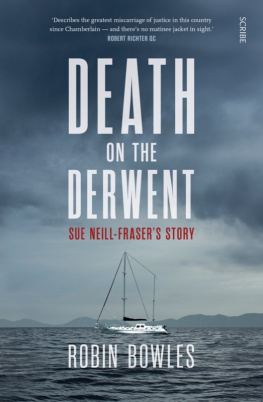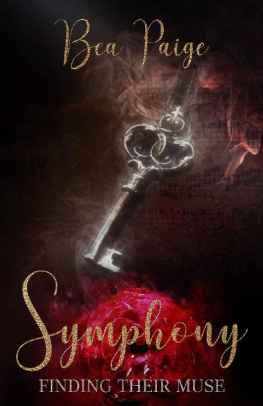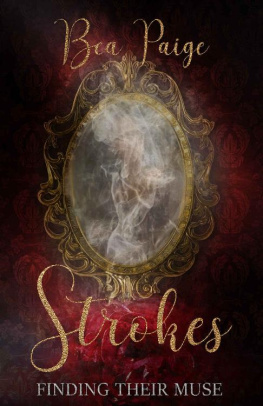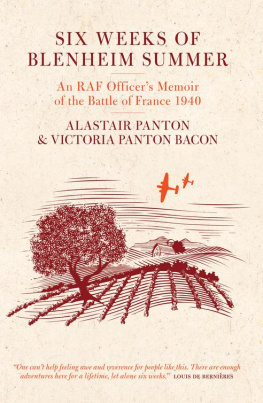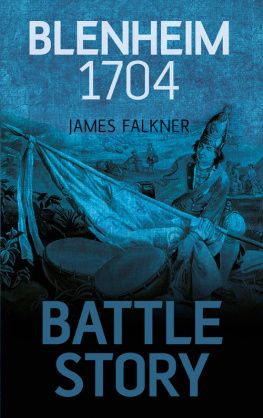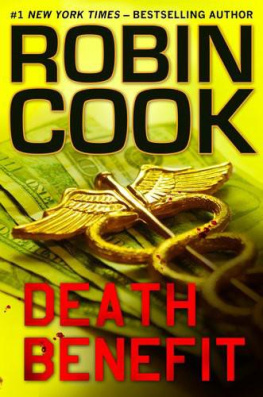Robin Paige - Death at Blenheim Palace
Here you can read online Robin Paige - Death at Blenheim Palace full text of the book (entire story) in english for free. Download pdf and epub, get meaning, cover and reviews about this ebook. genre: Detective and thriller. Description of the work, (preface) as well as reviews are available. Best literature library LitArk.com created for fans of good reading and offers a wide selection of genres:
Romance novel
Science fiction
Adventure
Detective
Science
History
Home and family
Prose
Art
Politics
Computer
Non-fiction
Religion
Business
Children
Humor
Choose a favorite category and find really read worthwhile books. Enjoy immersion in the world of imagination, feel the emotions of the characters or learn something new for yourself, make an fascinating discovery.

- Book:Death at Blenheim Palace
- Author:
- Genre:
- Rating:4 / 5
- Favourites:Add to favourites
- Your mark:
- 80
- 1
- 2
- 3
- 4
- 5
Death at Blenheim Palace: summary, description and annotation
We offer to read an annotation, description, summary or preface (depends on what the author of the book "Death at Blenheim Palace" wrote himself). If you haven't found the necessary information about the book — write in the comments, we will try to find it.
Death at Blenheim Palace — read online for free the complete book (whole text) full work
Below is the text of the book, divided by pages. System saving the place of the last page read, allows you to conveniently read the book "Death at Blenheim Palace" online for free, without having to search again every time where you left off. Put a bookmark, and you can go to the page where you finished reading at any time.
Font size:
Interval:
Bookmark:
Robin Paige
Death at Blenheim Palace
CHAPTER ONE
Friday, 8 May, 1903 Ashmolean Museum, Oxford
The Ashmolean Museum, the oldest public museum in Britain, houses the University of Oxfords unrivaled collection of art and antiquities from Europe, the Middle East, and Asia.
The Ashmolean Museum, Arthur MacGregorOh, sir! the boy cried excitedly, as John Buttersworth stepped into the conservation laboratory in the basement of the Ashmolean. The shipment from Crete has arrived at last! Shall we open it, sir?
Buttersworth regarded the large wooden crate in the middle of the floor. He did not mind the administrative routine of his post as Curator of Classical Collections, and he particularly enjoyed the business of setting up exhibits, such as the display of items from the Knossos excavation, scheduled to open next week. But the happiest moments in his life came when he could indulge his hearts true passion: holding and fondling the objects themselves, each one with its own beauty, its own history, its own secret story. Ah, yes, the shipment from Crete. He rubbed his hands together.
Well, then, my boy, he exclaimed. By all means, lets have a go at it!
Ned Lawrence fetched a long screwdriver and a hammer so ancient that it might have been mislaid from a Roman collection, and eagerly attacked the crate. Buttersworth stood to one side, admiring the deft way the boy handled the tools. Robust and sturdy, young Lawrence had the maturity and discipline of someone much older, and he stood out from all the other Oxford lads who hung about the museum, professing an interest in antiquities and begging to go on the local digs. He was a great favorite among the staff, all of whom felt that, as an archaeologist, he had the stuff in him to go far.
In a few moments, Ned had the lid up and off. Inside, packed in clean straw, were a number of smaller crates, with a large envelope on top. Buttersworth opened the envelope, removed a typed inventory, and began to compare the numbers with those stamped on the small crates that Ned lifted out and stacked to one side. There were nearly a dozen of them.
Buttersworth took off his gold-rimmed spectacles and polished them on his pocket-handkerchief. Lets start with this one, he said, nodding at the top crate. It should contain a five-inch Roman green glass pitcher.
Ned placed the small crate on the bench and applied the hammer and screwdriver until the top came loose. Buttersworth pushed the straw aside and carefully lifted out a small blown-glass pitcher. Turning it in his hands, he gave an involuntary sigh of purely sensual pleasure. The piece was exquisite, the shape round and voluptuous, the design delicate and skillfully executed. Originally, the glass had been a translucent green, but after nearly two millennia in an alkaline soil, it had taken on a metallic irridescence. The surface was a dancing rainbow of yellows, reds, and blues.
Ned seemed to be holding his breath, his eyes fixed on the pitcher. For a moment, neither spoke as Buttersworth held it up and turned it slowly, so that it caught and reflected the light.
Its perfect, Ned said at last, reverentially. Who owned it, I wonder-and what happened to him? He paused, wrinkling his forehead. No, it would have belonged to a woman, wouldnt it? I wonder how she got it. What did she think of it? Did she admire it because it was so beautiful? Or was it just something to hold-what? Wine? Water?
Buttersworth smiled. This was what he liked most about young Lawrence: his desire, rare in one so young, to know the unknowable, to ask questions and imagine answers. If he were really determined to become an archaeologist, this desire of his was essential, for the quest for answers was what drove men of Buttersworths profession. The need to know the who, what, how, and why of these ancient objects-some with their own intrinsic aesthetic value, others plain and insignificant-looking, still others monstrous and ugly, yet beautiful in their ugliness. The need to understand, to unearth, to investigate, to analyze, and, above all, to appreciate, to feel.
Buttersworth beamed at his protege. Good questions, lad. But there is another also to be answered. He set the pitcher safely on the shelf and stepped back. The real question is how such a fragile object managed to survive all the forces that have been set against it throughout the centuries. And not just natural forces, either. There have been vandals in every age, and Philistines who wouldnt recognize the value of a piece like this beyond the price it would bring. He rubbed his hands again. Now, let us see what other treasures we have been sent.
They had just completed the inventory when a bell rang, signaling that Buttersworth was wanted in the reception area. Still engrossed with the objects, Buttersworth sent Ned off to find out what was needed. Some moments later, he was back. He closed the door behind him and spoke in a low voice.
Theres a lady in the hallway, sir. She refuses to wait upstairs. She insists on speaking to you privately.
Intent on a rose-colored glass ampulla from the first century, Buttersworth spoke absently. A lady, eh? What does she want?
Ned frowned. Wouldnt give her name or state her business. She might be a patron, but- He shrugged.
Buttersworth put down the perfume bottle with an inward sigh. Maintaining cordial relations with wealthy benefactresses was one of his duties, but certainly not his favorite. He was much better with objects-the older the better, of course-than with people, and he was never at his best with women, who often wanted to complain about something or other, usually something inconsequential.
Well, I suppose I must, he said, resigned. Show her in, Ned. And I should like you to go upstairs and ask Mr. Gilkes for the catalogue of Roman glass in storage. There are one or two objects I want to compare.
With a show of exaggerated formality, Ned opened the door and bowed the lady in. She was modestly dressed in a dark walking suit, dark gloves, and a blue straw hat with an unassuming silk bow. Her face was swathed in a dark blue veil, but through its folds, Buttersworth could see that it was quite striking. The nose, especially-classic, very like the nose on a piece of ancient Greek statuary. And the eyes, blue and set wide apart. He did not know her-had he ever seen her, he would surely not have forgotten that stunning Grecian profile-and from her unpretentious dress, he judged that she was not one of the museums patronesses, those elegant ladies who swept in with an air of ostentatious wealth and offered him their hands as if they owned the place.
She did not offer her hand. You are John Buttersworth? Her voice was low, pleasant, cultured. A ladys secretary, perhaps.
I am. Buttersworth cleared his throat. How may I be of service, madam?
I understand that you are the Ashmoleans expert on classical antiquities.
Buttersworth inclined his head. I have that honor.
Very well, then. My employer has asked me to bring these items to you. She would like your opinion of their value. The veiled woman produced a brown leather pouch from her purse and placed it on the table.
Their value? Buttersworth was momentarily amused. The Ashmolean was not a pawnshop. But the woman might be acting as an agent for a potential donor. There would certainly be no harm in having a look. He loosened the drawstring and emptied five small objects onto the table, each one tidily wrapped in tissue paper. He chose one, undid the tissue, and held in his hand the effigy of a large beetle, covered with a turquoise glaze.
Surprised, he reached into his pocket for his jewelers loupe, pushed his spectacles onto his forehead, and put the loupe in his left eye. Squinting, he examined the beetles underside, which was engraved with intaglio hieroglyphics. The piece was a seal, the hieroglyphics mirror images of the impressions they would make in wax or clay. An Egyptian scarab, Eighteenth Dynasty, he thought. A pretty piece of faience, of the sort that often turned up in the Cairo bazaars.
Font size:
Interval:
Bookmark:
Similar books «Death at Blenheim Palace»
Look at similar books to Death at Blenheim Palace. We have selected literature similar in name and meaning in the hope of providing readers with more options to find new, interesting, not yet read works.
Discussion, reviews of the book Death at Blenheim Palace and just readers' own opinions. Leave your comments, write what you think about the work, its meaning or the main characters. Specify what exactly you liked and what you didn't like, and why you think so.

